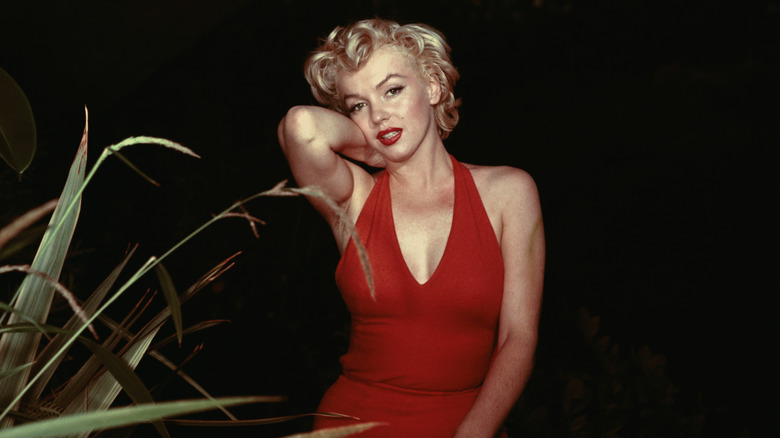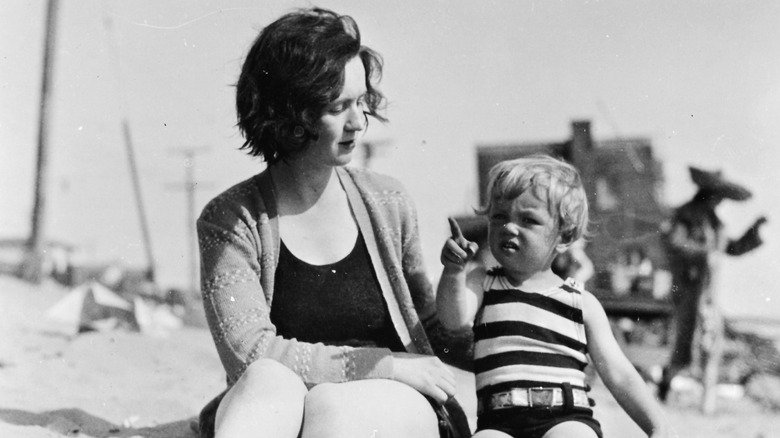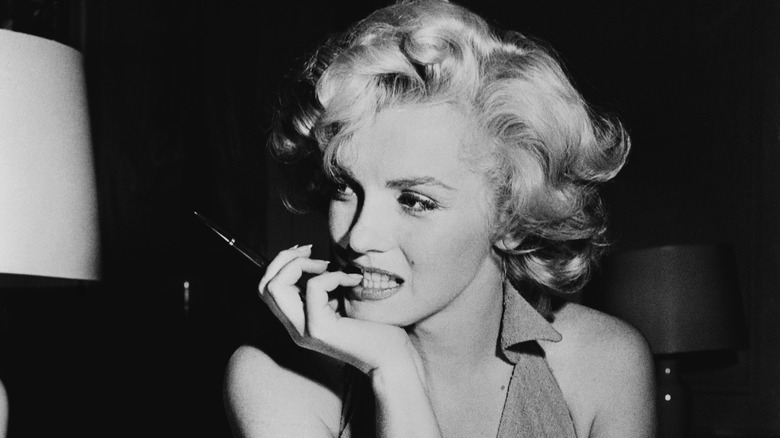Marilyn Monroe's Tragic Childhood Explained
Marilyn Monroe is one of the world's most recognizable and cherished Hollywood icons. Known for her bombshell figure and bright blonde curls, 1950s America unanimously designated Monroe as the nation's sex symbol. Her career officially began in 1945 when she entered the world of modeling. By 1946, her image had made its first appearance on the cover of a nationwide magazine. Following this debut, Marilyn began her career on the big screen as an actress. Just three years after being casted in her first big film, "Marilyn Monroe" was being printed on the Hollywood Walk of Fame.
And while the actress's path to stardom appears like a walk in the park on paper, this is far from the truth. While enduring an overwhelming onslaught of attention from the public, Monroe reportedly struggled with her mental health. Part of Monroe's allure may lie in the dark reality she concealed beneath her glamorous persona.
While her adult years were riddled with challenges, few people know the tragic truth about Marilyn Monroe's childhood.
Marilyn Monroe's tumultuous childhood
Marilyn Monroe was born to Gladys Pearl Baker in 1926 in Los Angeles, California. However, at the time, she was not Marilyn Monroe at all; her mother named her "Norma Jeane Mortenson," and her life was a far cry from the glitz and glamor of Hollywood. Baker placed her 2-week-old daughter in foster care. While Monroe's mother appeared in and out of her life in her early childhood, her mental health made it difficult for her to raise her daughter. By the time Monroe was 8 years old, her mother was forcibly admitted to an asylum and diagnosed with paranoid schizophrenia.
Throughout her childhood, Monroe lived in over 10 different foster homes. She ended this journey with foster care at an orphanage. YouTube channel Marilyn Monroe Video Archives released clips of Monroe discussing her childhood in interviews for the documentary "Marilyn On Marilyn." Monroe explained, "You see, some places I was taken there at the end of the school term, and they were planning to keep me, but then after the summer, they'd had enough. So then I was taken to another place, so that's why there were so many."
It's clear that rejection and loneliness painted Marilyn Monroe's childhood with hurt and difficulty.
If you or someone you know needs help with mental health, please contact the Crisis Text Line by texting HOME to 741741, call the National Alliance on Mental Illness helpline at 1-800-950-NAMI (6264), or visit the National Institute of Mental Health website.
The long lasting effects of Marilyn Monroe's tragic childhood
As a child, Marilyn Monroe was given the message that she was unwanted and unloved. By adulthood, she was drowning in love and desire from strangers worldwide. In another clip from the Marilyn Monroe Video Archives' YouTube video of "Marilyn On Marilyn" interviews, Monroe explained that acting and the movies were her escape from the painful experiences she had endured in elementary school. Through make-believe circumstances, Monroe could recreate her life. This was a godsend for Monroe who recalled in the interview, "I didn't like the world around me because it was kind of grim."
While Monroe found luxury and adoration as an adult, it seems that the pain of her childhood continued to haunt her. While the rest of the world was concerned with Marilyn Monroe's beauty secrets, much deeper, melancholy secrets and memories clouded her mind. At the end of Monroe's short life, she was reportedly working with a psychiatrist five days a week. In the course of this work, Monroe was briefly institutionalized. At 36, Marilyn Monroe died from an alleged suicide overdose.
If you or anyone you know needs help with addiction issues, help is available. Visit the Substance Abuse and Mental Health Services Administration website or contact SAMHSA's National Helpline at 1-800-662-HELP (4357).


